Avocado oil is a natural, thick and high-fat edible oil that is made from pressing the pulp of the avocado fruit (scientific name – persea americana). It has a smooth, buttery flavor and high absorption. With the rising popularity of avocados due to their high nutrient content, avocado oil has also become ubiquitous- not only in cooking but also in skin and hair care.
While avocado is a tropical fruit that grows in warmer climates, its usage has now spread all over the world making it a common household commodity. It’s high healthy fat content, antioxidant and regenerative properties have earned it a unique and consistently growing position in the global market – $438million in 2018 to a projected $646million by 2026.

Avocado oil production is limited to the areas where it is grown with North America (Canada, US and Mexico) accounting for half the global production and consumption while South America (Peru, Chile and Brazil), Africa, Europe, Asia Pacific (China and Japan) and New Zealand contributing towards the rest.
History of avocado oil
Origin of the avocado fruit
Avocado had its origin in central Mexico more than 10,000 years ago with the first evidence of its use by the Mesoamericans in 5000 BC. It was also used widely in the Aztec Empire where it was called “ahuacati” or “alligator pear” because of the rough texture of its skin. It was highly valued in the Aztec culture as a sexual stimulant as it boosts libido and is a great source of energy.
Spread of avocado throughout the world
The Spanish colonization of Mexico led to its spread across South and Central America where the fruit thrived due to the favorable warm climate. It was later brought across the Atlantic to the European continents into Italy and France but the temperate climates weren’t suitable for its growth. However, it quickly spread across the Mediterranean region and became a popular addition to their diet. The fruit was also introduced in Spain, Brazil, Indonesia, South Africa, Australia and the US from the 16th to 19th century. The Hass breed became the most popularly cultivated variety, and it remains to be so even today.
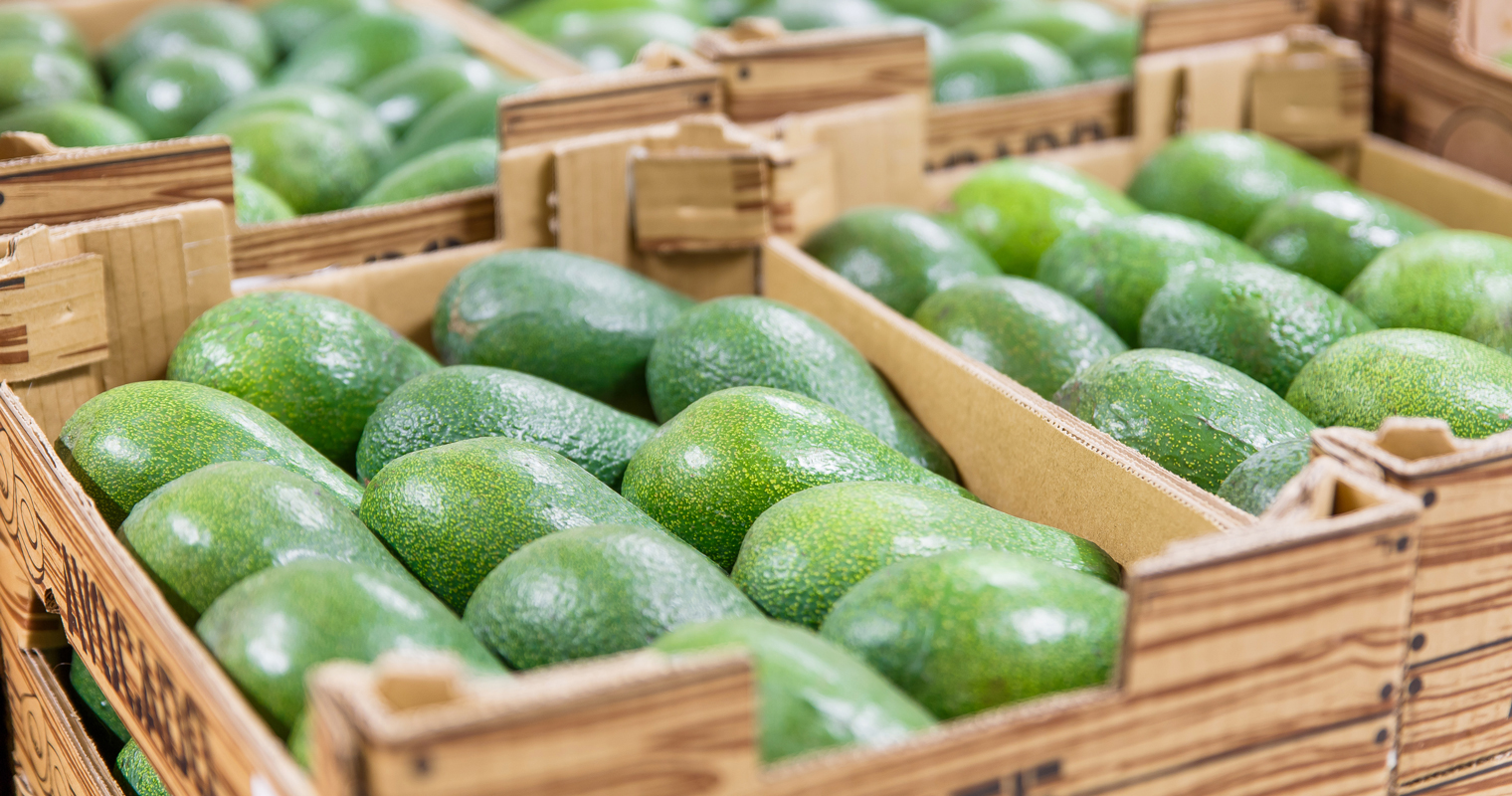
Origin of avocado oil as a crude oil
While the avocado fruit has been eaten for thousands of years, avocado oil is only a newer innovation, especially as a culinary oil. While the avocado industry thrived mainly on the sale of avocado fruit, farmers wanted to find ways to use the blemished and scarred fruit. They explored the possibility of extracting oil from it.
Oil extraction through crude methods has been recorded in the early 20th century where the pulp of the avocado fruit was dried and the oil was squeezed out with a hydraulic press.
During WWII in 1942, in the desperate need for fat alternatives, the solvent extraction method was used to extract avocado oil but it still remained inedible and used only for lubrication and in cosmetics. This method produces a highly refined oil and it is still used commercially in the manufacture of hair products, face creams and other cosmetics.
Avocado oil in cosmetics
While the green color of avocado oil made it seem unfit for oral consumption, initial reports of its use in cosmetics seemed promising because of its high vitamin content, excellent skin penetration and the mild odor. As a cosmetic oil, the following properties made avocado oil promising in the industry as a “skin food”.
- The penetration power of avocado oil is comparable with lanolin making it an excellent “carrier” for other beneficial compounds that lack penetration. It was therefore used in massage oils, skin nourishing creams and other cosmetic preparations where lubrication and penetration are crucial.
- Avocado oil also has good lathering and cleansing properties which make it an excellent component in high-end soaps.
- It was an easy replacement for animal oils like cod liver oil and turtle oil because it still contained the essential Vitamins A, B, D, E without imparting an objectionable odor to the product
- Despite its high fat content, it appears less greasy than other animal and vegetable oils.

Invention of cold pressed avocado oil
It was not until two decades ago that the cold pressed method of avocado oil extraction was developed, making it fit for culinary usage. First developed in New Zealand, this method involves de-skinning and de-seeding the fruit, mechanically crushing the pulp and kneading it at low temperatures (<50 deg C) till the oil is released. (read this article to learn more about benefits of “Cold Press”)
The “Cold Press” method separates the oil from the water and pulp solids producing a purer grade of oil where the nutrients are not lost due to excessive heating or the use of chemical solvents.
Cultivation of avocados
Avocados need frost-free, warm and tropical climatic conditions along with fertile soils for cultivation. The fruit takes about 9-10 months to mature to an optimum size and oil content only after which they can ripen to a desirable flavor. Fruits that are not mature enough will not yield the desirable oil content. Maturity of the fruit is determined with the dry matter percentage test where the weight of avocado pulp is measured before and after drying. For the Hass variety, a 23-24% dry matter is found to result in the best quality of fruit after ripening.
Ripening involves softening of the pulp and change of the skin color and texture from a smooth, shiny green to a purple-black, hard and rough texture. It is important for the fruit to ripen so that oil can be released from the cells. Apart from color and texture, the firmness of the fruit defines its ripeness.
Under-ripe fruit will yield only 75% of the maximum possible oil that can be extracted from the fruit. On the other hand, over-ripe fruit with physical damage and rots can also ruin flavor and texture. This is why it’s critical that the fruit is optimally mature and ripe for the best quality of oil and this is what also makes the harvest of the fruit highly susceptible to weather conditions.
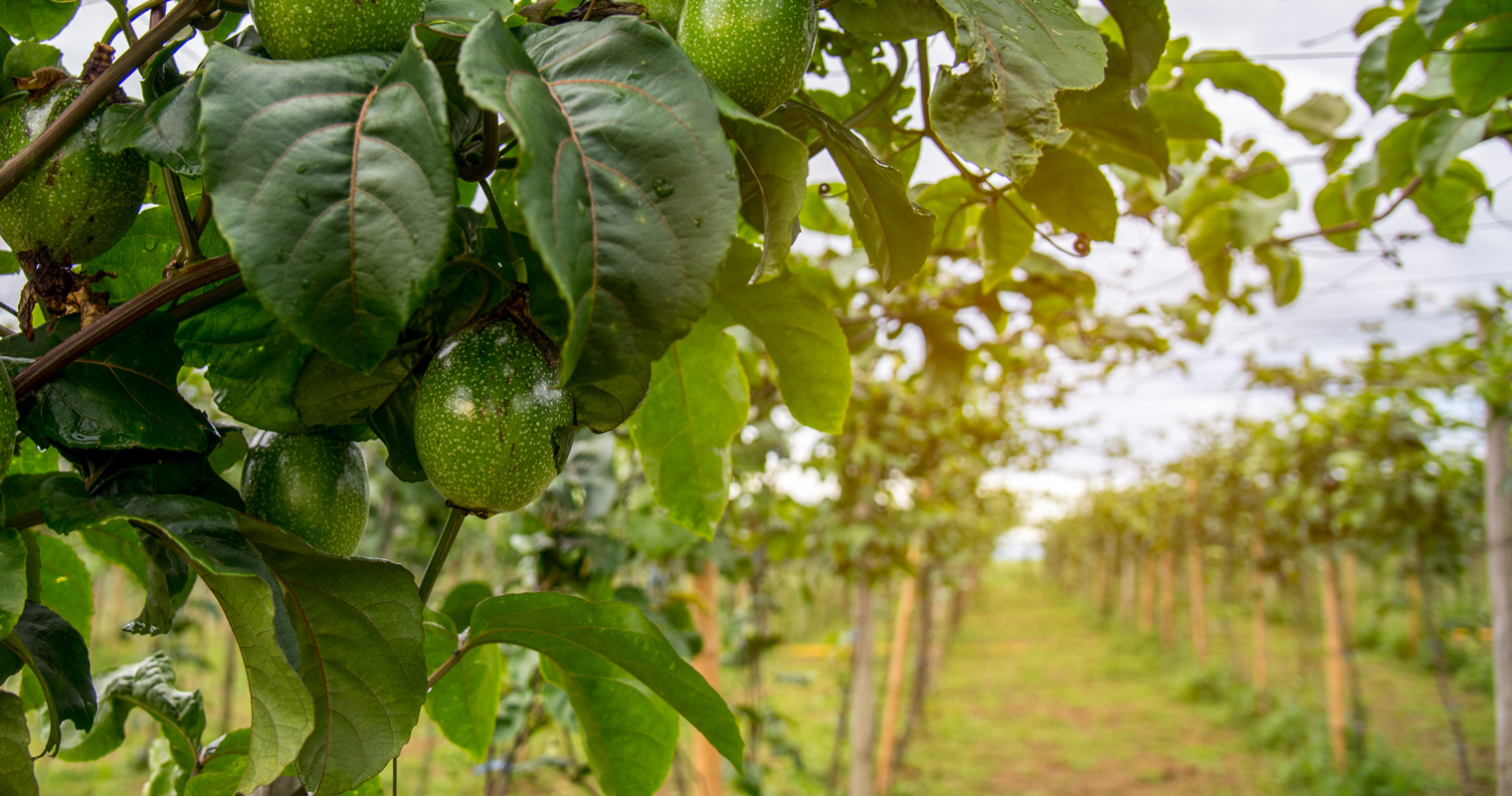
Once harvested, avocados take about 1-2 weeks to ripen depending on their variety, season of harvest and maturity. The ripening can be expedited by storing avocados in ethylene chambers. Reversingly, ripening can be slowed by refrigerating them at 5-12 degree Celsius at a relative humidity of 95% in ethylene-free chambers. While the ripening can be delayed to 3-4 weeks to allow adequate shipping time and added shelf-life, it’s a massive challenge to extend the same to anything beyond 6 weeks.
Grades of Avocado Oil
Extra Virgin
This is the best variety of avocado oil that is extracted from high quality fruits with minimal blemishes and rot using the cold-press method.
It has an intense, emerald-green color with a grassy, buttery flavor and a smoke point higher than 250 degree Celsius or 482 degree Fahrenheit.
Virgin
This is the second grade of avocado oil extracted from sound fruits with physiological disorders and a few rots, also extracted with the cold-press.
It has a yellowish green color and smoke point of 200-250 degree Celsius with a milder avocado flavor.
Pure
This is a decolorized and deodorized form of avocado oil with low acidity, color and flavor made from good-quality virgin oil. Some varieties come infused with fruity and herby flavors like rosemary, chilli, lemon, etc.
It has a pale yellow color with a smoke point greater than 250 deg C.
Blended
Due to its mild, buttery flavor, avocado oil is perfect for blends with extra virgin olive, macadamia, pumpkin and flax seed oil to provide a wide scale of flavors and smoke point.
How to buy avocado oil?
Here are some simple factors to keep in mind while buying avocado oil to ensure quality and value for money
Container
Make sure the oil comes in a dark glass container as avocado oil is susceptible to photo-oxidation. Avoid plastic or PET containers as they can react with the oil to affect its taste and flavor.
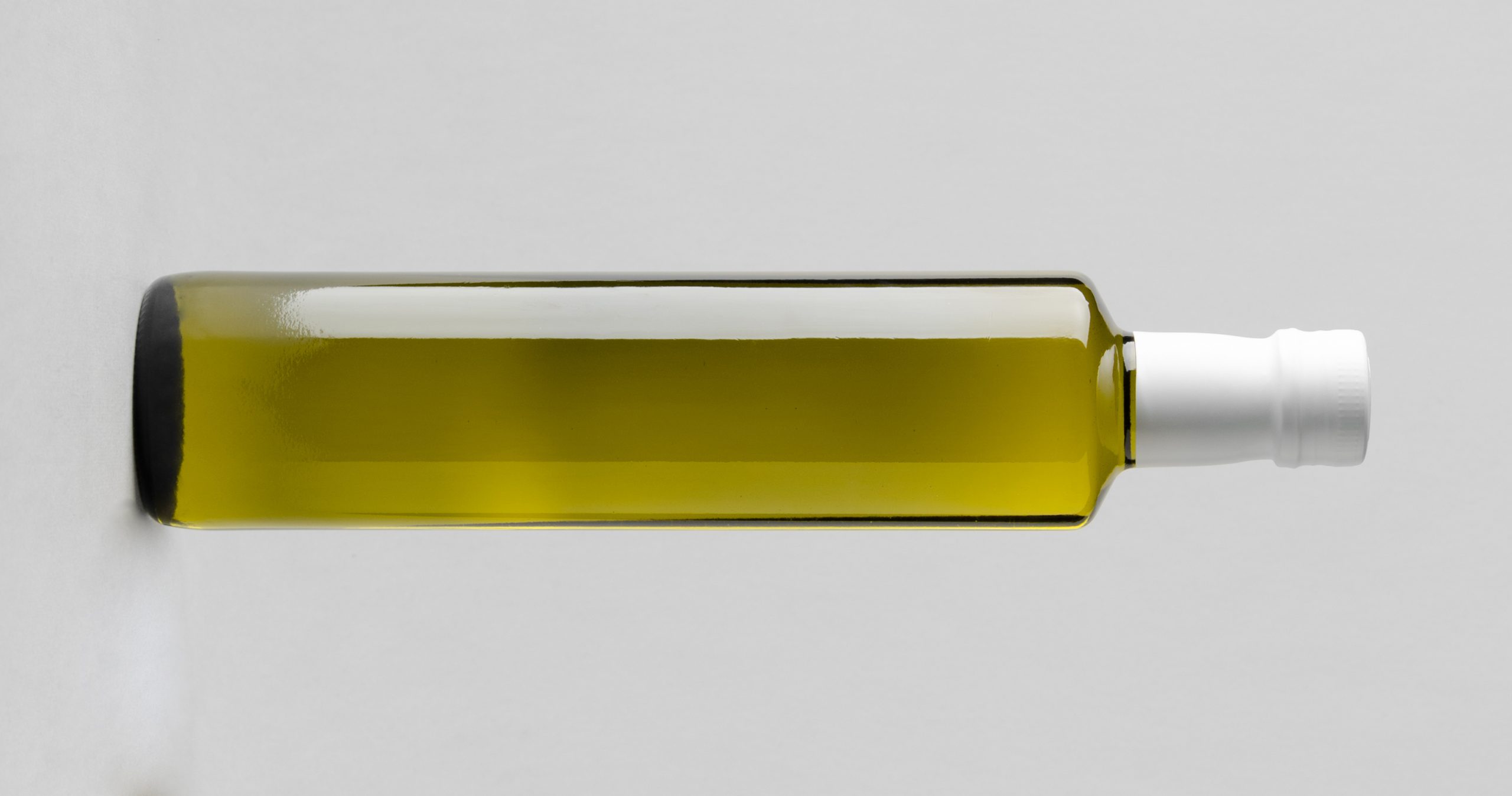
Grade
Go for extra-virgin avocado oil and since there aren’t any set standards for the definition of “extra-virgin”, look for one with a low acid content (<0.8%).
Extraction method
Buy cold-pressed avocado oil as it contains a lot more nutrients like carotenoids and chlorophyll which get eliminated in the traditional heat or chemical extraction.
Color
High quality avocado oil has a dark and intense emerald-green color. As the quality drops, the color lightens to a pale yellow.
Shelf-life
Check for shelf life – extra-virgin avocado oil lasts for about 18 months as the chlorophyll that imparts it the dark green color also reduces its stability. So avoid buying an older bottle or products that claim longer shelf life.
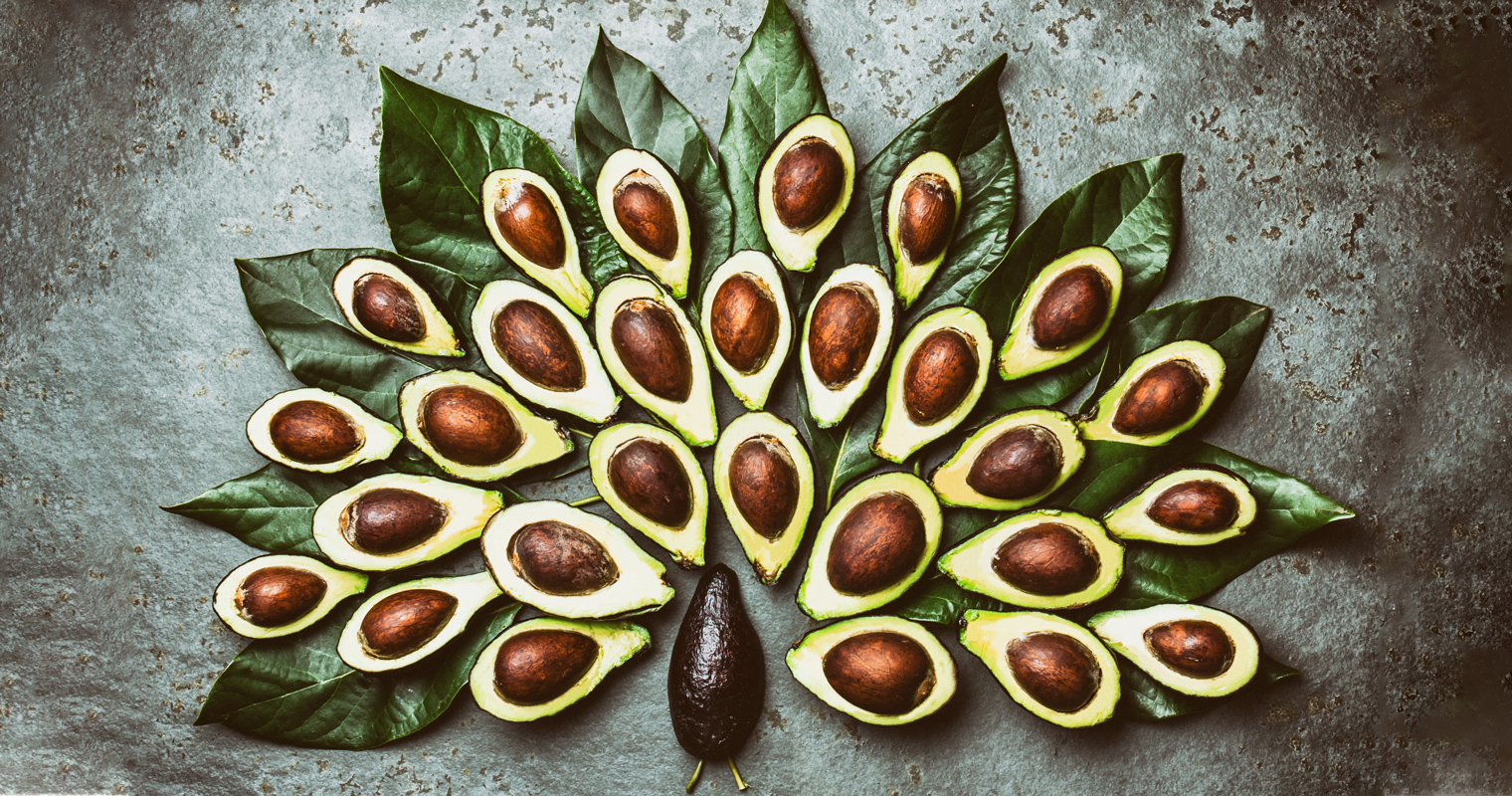
Why has avocado oil gained such popularity over the last decade?
Health benefits
Health benefits from the nutritional properties have popularized avocado oil in the recent years when general awareness for a healthy lifestyle has increased.
- Avocado oil has high concentrations of Potassium and Vitamin E which have antioxidant and anti-inflammatory properties that protect the cardiovascular system.
- Beta-sitosterol is another antioxidant that limits the absorption of cholesterol during digestion.
- Lutein found in unrefined avocado oil helps with vision by preventing macular degeneration with age.
- Avocado oil has a high ratio of monounsaturated fats or the popular oleic acid (72-76%) against the saturated fat content (13-16%) which makes it a healthy choice among nutritionists. Most other vegetable oils, on the other hand, are rich in polyunsaturated fats which are considered unhealthy.
- Avocado oil is also rich in omega-9 fatty acids which have been shown to increase HDL which is the “good” cholesterol and decrease LDL – the “bad” cholesterol. This helps reduce plaque build-up in arteries, which is the primary cause for strokes and heart attacks.
- Chlorophyll and therefore magnesium in avocado oil helps detox the body from heavy metals like mercury and lead that may build up in the kidneys, brain, liver, etc.
Culinary benefits
- Avocado oil has a very palatable nutty, rich and buttery to a mild, bland flavor making it a great option for vinaigrettes and dressings on salads.
- The high smoke point of avocado oil makes it a great option for high-temperature cooking including roasting, frying, sautéing and searing. The smoke point of extra-virgin avocado oil is higher than that of most refined oils.
- Avocado oil also blends well with other herby as well as nutty flavors.
Hair and skin care benefits
Avocado oil was originally and is still used primarily for cosmetics in the hair and skin care industry for its following properties.
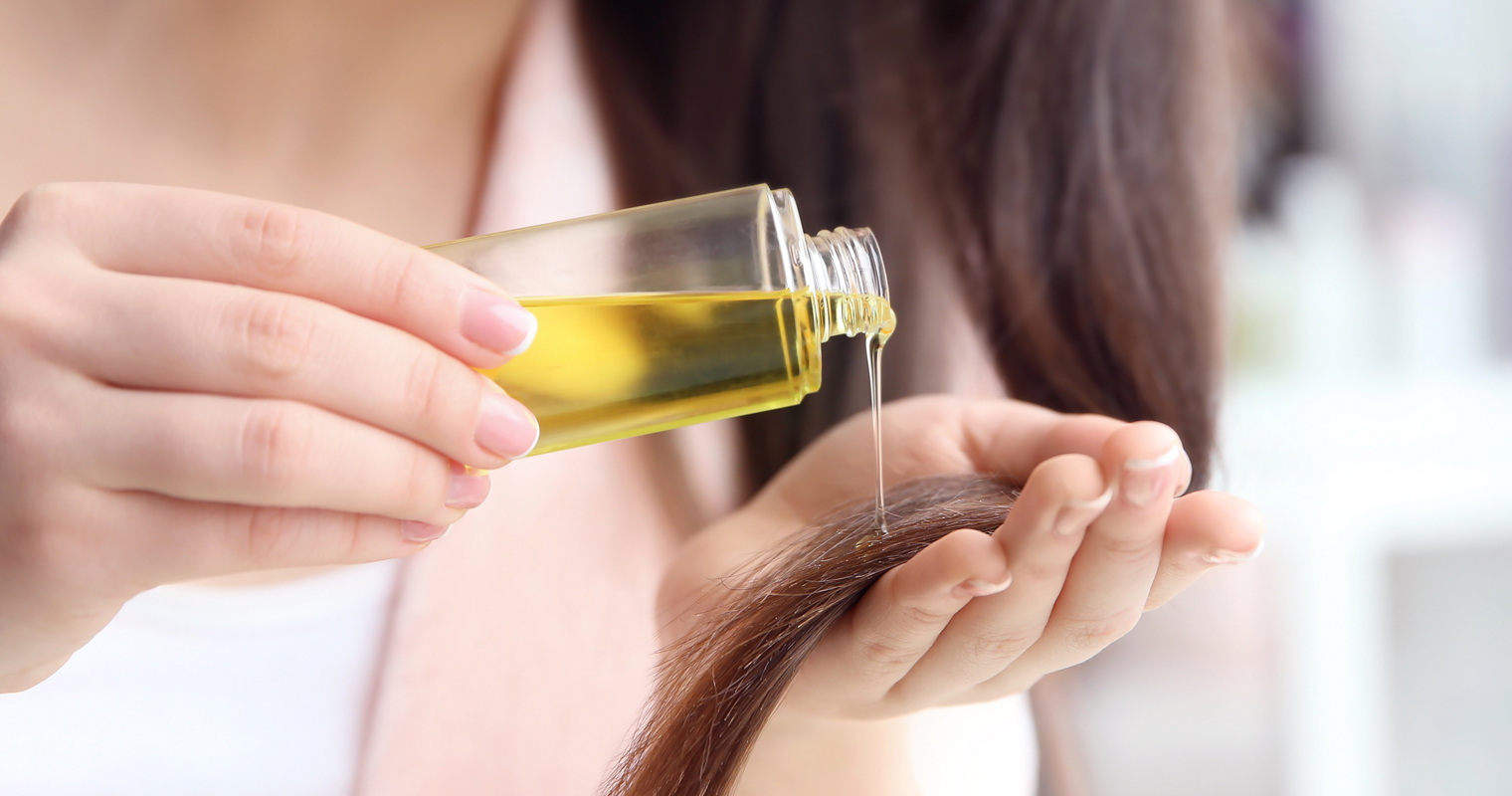
Moisturizing and nourishing
Its high fatty acid and Vitamin E content makes avocado oil moisturizing and nourishing for both skin and hair. It helps calm skin irritation and flaking. Palmitic acid present in the oil allows for high absorption and penetration which together with its high nutrient content make it deeply nourishing.
Avocado oil is used to treat dry, flaky skin and chapped lips. It also helps heal and prevent dry brittle nails and therefore promotes nail health.
This oil is also popularly used for promoting hair growth and hair health as it prevents dry scalp and hair damage from dryness, knotting and breakage.
Anti-inflammatory
Avocado oil’s antioxidant and antimicrobial qualities help in collagen synthesis that is responsible for tissue regeneration. It is therefore effective for healing inflammations and for the development of new skin.
Avocado oil is used to treat acne and blackheads. Also, when avocado oil is added to vitamin B12 skin cream preparation, it increases tolerance and can therefore be used for the long-term topical therapy of skin conditions like psoriasis and eczema.
Protective
The mono-saturated fats like linolenic acid and luteic acid in avocado oil form a protective layer against UV radiation damage and tanning from sun exposure. The oil also helps in revival and regeneration of sun-burnt skin with its antioxidant composition of Vitamin D, vitamin E Beta Carotene, protein and lecithin.
When used on the hair, avocado oil forms a protective layer against sunlight, pollution and other environmental hair damage factors.
Anti-aging
The deep moisturizing and antioxidant nature of avocado oil, together with its richness in Vitamin C (which stimulates collagen synthesis) help increase skin elasticity and are therefore, effective in removing wrinkles and other early signs of aging.

Weight loss benefits
Avocado oil is a weight loss stimulant due to its high omega-9 fatty acid content that scientists believe increases blood flow in the muscles during exercise. The oleic acid and monounsaturated fats in this oil are known to reduce belly fat thereby lowering the risk of metabolic syndrome – a condition characterized with health markers that cause weight gain.
Increased health awareness and media popularity
Avocado oil is gaining popularity with media coverage and promotion by popular dieticians and nutritionists and the growing trend of diets like the Paleo, Keto and Mediterranean Diets. Social media platforms like Pinterest and Instagram, along with hundreds of cooking websites are filled with photogenic recipes of foods cooked in avocado oil.
The Millenial-driven avocado-fever has ushered the avocado boom over the last decade. Increased popularity of the avocado fruit by itself means excess leftover lower quality fruit for extraction of oil.

New investments
Investments have been made in new production units in Kenya, Columbia and Dominican Republic over the last decade in order to keep up with the rising demands across the world.
Commercial uses of avocado oil
- As an edible oil in cooking
- In face masks
- In sunscreens
- In moisturizers and lotions
- In anti-aging creams
- As a hot oil hair mask
- As a leave-in conditioner
Is avocado oil taking over olive oil?
While both avocado and olive oil have similar nutritional profiles with similar fat content, antioxidants and vitamins, one can consider the following points that make avocado oil superior to olive oil
Smoke point
Avocado oil has a smoke point of 485-500 degF as against that of olive oil (430 degF for light and 220 degF for extra-virgin) allowing it a more versatile cooking use such as frying and searing.
Flavor and taste
Olive oil has a distinct, sharp taste that can be overwhelming and thereby making it unsuitable for all kinds of cooking. Avocado oil, on the other hand, has a mild and mellow buttery flavor that makes it a great choice or any kind of cooking, even baking.
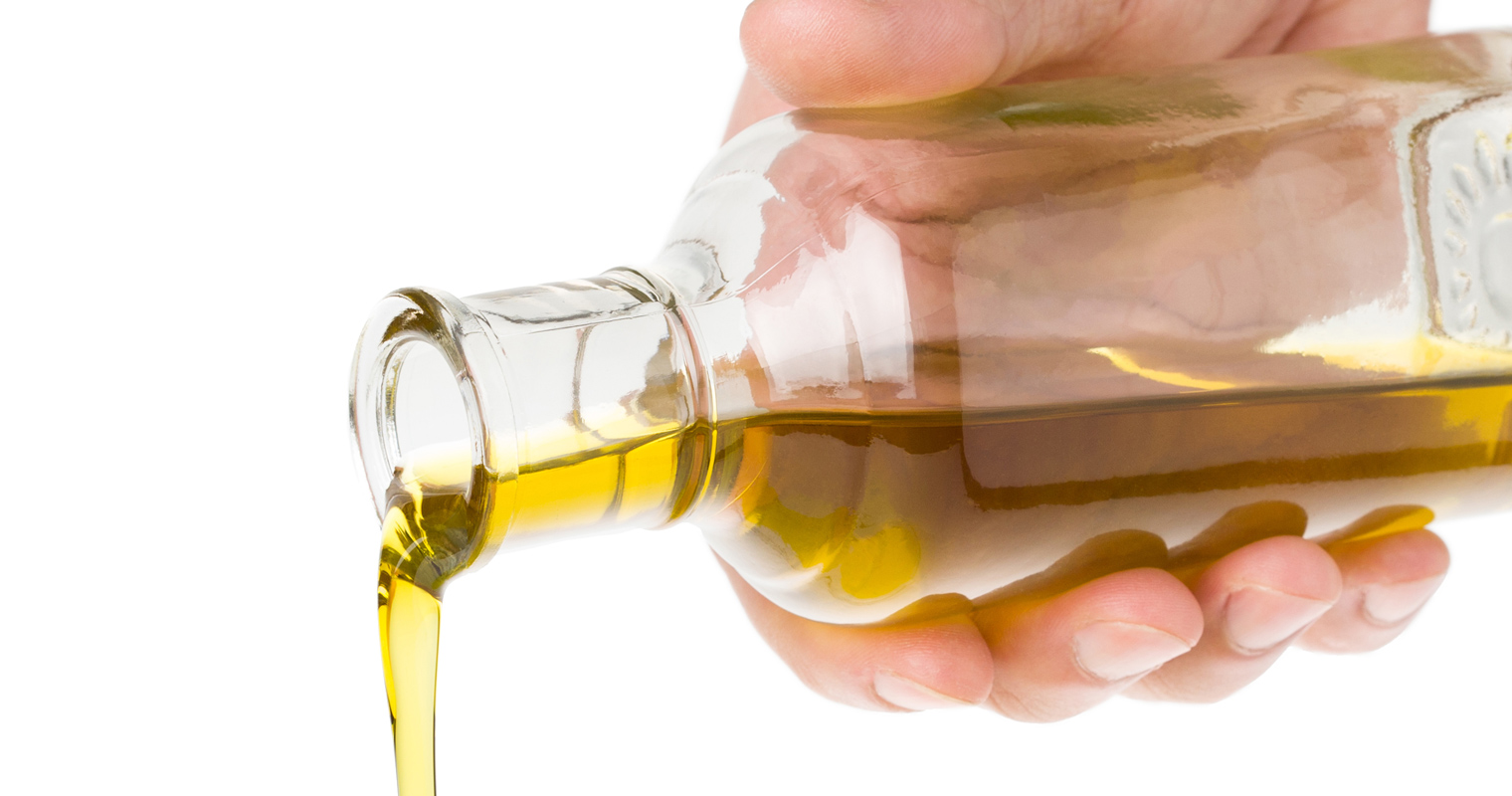
Cultivation
Cultivation of olive oil is hit by climate change, pest attack and drought resulting in poorer quality that has tarnished the image of olive oil. While avocado oil is considered a high-end oil, its demand and spread across newer markets is increasing rapidly in comparison.
Restrictions with the usage of avocado oil
Cost
Avocado oil is likely to remain a gourmet product limited to high-end usage because the crop is highly susceptible to weather conditions making its harvest unpredictable.
Heat sensitivity
While it’s suitable for high-heating cooking, avocado oil is also susceptible to decrease in nutritional value when exposed to heat.
Light sensitivity
While the chrolophyll in avocado oil has nutritional advantage, it does not help maintain its stability as it sensitizes the photo-oxidation of the oil. It is therefore extremely important that the oil be stored away from light.
Prone to oxidation
While it can be used for high-heat cooking, when compared with extra-virgin olive, avocado oil is more prone to oxidation and the formation of toxic compounds. When avocado oil starts smoking, it loses its nutritional advantage – the monounsaturated fats break down and become trans-fats that are harmful instead. High heat also leads to oxidation which releases free radicals and compounds that are both carcinogenic and mutational. This starts happening even at temperatures below the smoke point though at a smaller conversion rate that increases towards the smoke point.
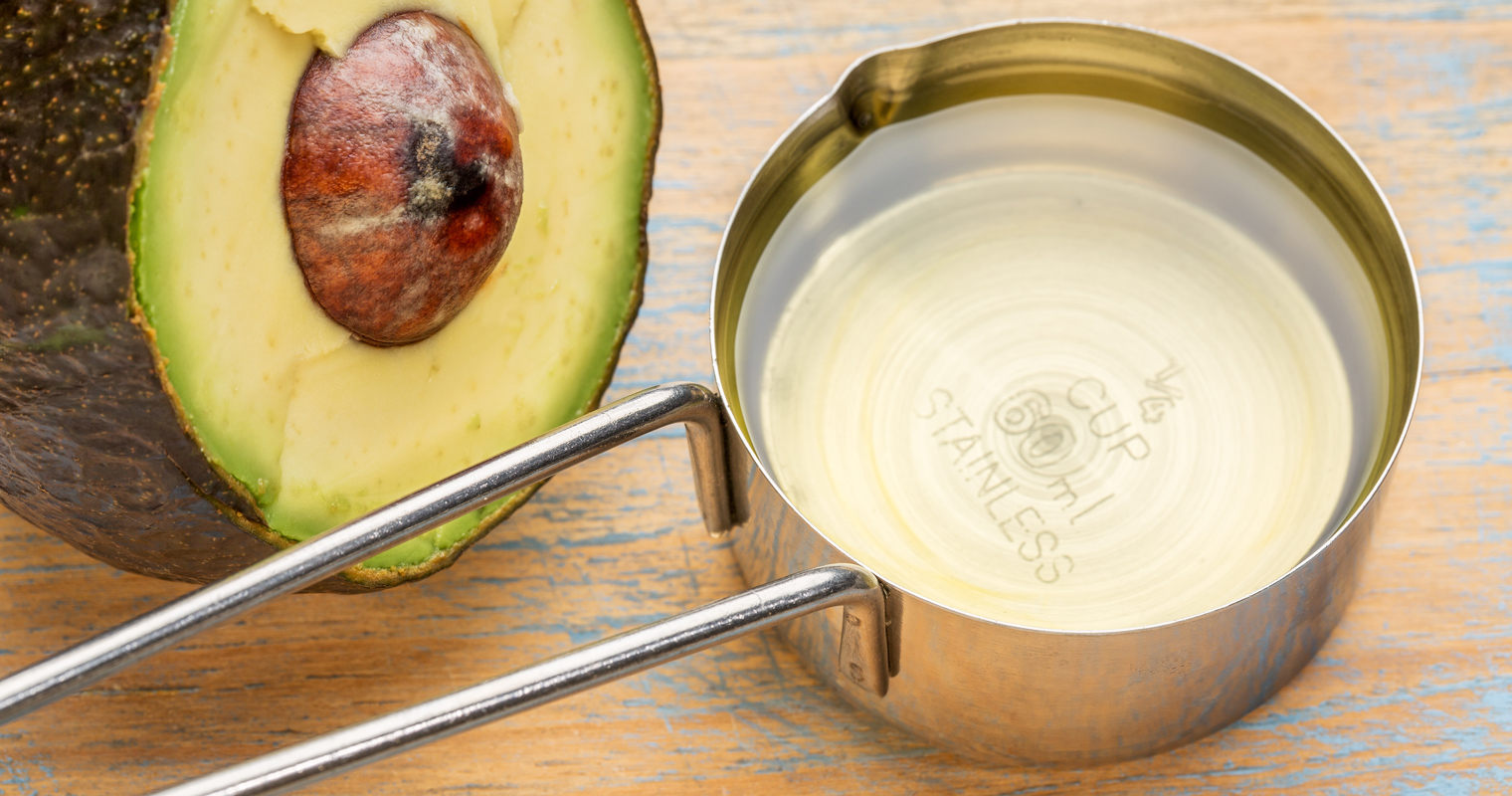
On the other hand, olive oil contains polyphenols that provide relative protection from oxidation at high heats even though it too loses its nutritional advantage on exposure to high heat.
Strictly speaking, both olive and avocado oil are best avoided for very high heat cooking such as deep-frying and it is best to stick with refined oils like sunflower, peanut and palm oils for such purposes. Avocado and olive oil are best used raw as dressings to achieve most out of their nutritional advantages..
Allergies caused by avocado oil
Those people who have a latex allergy may also be allergic to avocado oil. Some people experience stomachache and bloating after consuming foods cooked in this oil.
Though it is rare, some people also experience allergic contact dermatitis – an allergic reaction in a localized area of the skin – upon topical use of products that contain avocado oil. It manifests as a rash, inflammation and redness in the area of application. It isn’t severe and can be treated with an over-the-counter cortisone or hydroxycortisone cream.
Why is avocado oil unsustainable?
The farming of avocado trees is, unfortunately, leading to deforestation, the destruction of natural ecosystems and contributing majorly to climate change and the funding of drug cartels.

In the Michoacan region in Mexico, avocado farmers are clearing up the pine forests which is the natural habitat for a number of local species, in order to substitute them for lucrative avocado farms.
Also, avocados consume a shockingly large quantity of water for growth (1kg avocados consume 1000L of water!) leading to the diversion of local streams away from the local indigenous species. Even the local residents around the avocado farms are suffering from respiratory and stomach issues caused by the toxins released by avocado trees. The Petrocan region in Chile, another major producer of avocados, is suffering from acute water shortage triggered by avocado farming.
It is also hard to ignore the unethical treatment of avocado farmers and workers in the production areas. The locals who once called avocados “green gold” now call it “blood guacamole” due to the ruthless pressure and lashings from gangsters when harvests don’t meet their expectations, despite the unpredictability of weather conditions.
What is being done about it?
Attempts are being made to mitigate the issue – governments are pushing for the use of drip irrigation and measures to prevent evaporation of water at the avocado farms to reduce their water consumption.
Research is underway and horticulturists are working hard to develop an avocado strain that has resistance against frost and can grow in cooler climates so that avocado farms can be locally grown instead of transporting the fruit and its products long distances from tropical to temperate and cold countries.
Although it is slow, the media is creating awareness about the dark side of this fruit by relating stories about the unethical treatment of avocado farmers and the environmental damage caused by the rising demand of this fruit.

Why is avocado oil so expensive?
Even with all its benefits, one major drawback with the usage of avocado oil is its price. Here are some factors that contribute not only to its expense but also its rapid rise.
Relatively new market
When compared to olive oil, avocado oil is a relatively new oil in the market and despite growing popularity, it is still a new trend that will take a while to pick up the scale of olive oil – $11.2 billion in 2018 to a projected $17.2 billion in 2028. With a relatively smaller market, there is less budget to subsidize the production cost of avocado oil.

Difficult cultivation and handling
Avocado is an expensive fruit because of its highly specific requirements for cultivation and its susceptibility to climate changes. Avocados can grow only in warm and humid, frost-free climates with fertile soils and adequate rainfall. They also demand a heavy water requirement with sufficient drainage for growth.
Typically, after full-bloom, avocados take about 8-10 months to mature on the tree. Without optimal conditions, best quality harvest is not achievable especially with changing rainfall and increasing drought conditions. Also, the plants need heavy fertilizing to maintain soil fertility for the right size and fullness of the fruit. Avocados are also prone to the attack of pests and fungal diseases.
It’s not just the cultivation but the fruit handling that adds to the cost. Avocados are prone to physiological damage like bruises, blemishes and rot which can significantly reduce their quality by affecting flavor and taste.
Transport
Because avocados cannot be grown anywhere and everywhere while the fruit and its products are used all over the world, they have to be transported thousands of miles from farms and production units to the consumers. This not only adds to the carbon footprint but also a huge cost factor.

Competition with the avocado fruit
Avocados as a fruit are a lot more popular than avocado oil and with the best quality fruit going directly for sale in the market, only the lower grade of fruit with rots, blemishes and physiological damage are left for oil extraction.
Increasing demand
While new investments are underway, the demand for avocado oil is rising rapidly, especially with the increased health awareness. The supply is still limited compared to these demands adding a major cost factor to avocado oil.
Substitutes for avocado oil
Despite the many benefits and advantages of avocado oil, avocado oil has its own share of “too good to be true” downsides and it is, therefore, imperative to consider the following alternatives:
Culinary substitutes
- Grapeseed oil if you’re looking for an oil with high smoke point but minimal flavor
- Extra virgin olive oil for low-heat cooking with a buttery flavor
- Coconut oil for high heat cooking like sautéing and stir-frying
- Macadamia nut oil for the healthy monounsaturated fats
Hair and skin care substitutes
- Coconut oil for its nourishing and deep penetration, anti-fungal and anti-bacterial properties (contains Vitamin E, K).
- Olive oil for its richness in nutrients like Vitamin A, D, E, K and its cleansing and moisturizing properties.
- Sunflower seed oil as a moisturizer, especially for infants as it doesn’t cause or aggravate contact dermatitis.
- Shea butter as an excellent moisturizer for skin and hair.
- Jojoba oil as anti-inflammatory for wound healing.
- Grapeseed oil for its high phytochemical content that gives it strong antioxidant properties.
- Almond oil for its non-greasy, light texture with richness in nutrients like vitamin E, potassium, zinc and proteins.
References
https://www.statista.com/statistics/931219/global-avocado-market-value/
https://www.marketwatch.com/press-release/global-avocado-oil-market-size-2020-industry-research-share-trend-industry-size-price-future-analysis-regional-outlook-to-2025-research-report—360-market-updates-2020-05-04
https://www.cosmeticsandskin.com/efe/avocado.php
https://historycooperative.org/history-of-avocado-oil/
https://www.aocs.org/stay-informed/inform-magazine/featured-articles/what-is-unrefined-extra-virgin-cold-pressed-avocado-oil-april-2010?SSO=True
https://www.sciencedirect.com/topics/agricultural-and-biological-sciences/avocado-oil
https://www.farmersalmanac.com/ten-amazing-benefits-of-avocado-oil-21992
https://www.olivado.com/blog/look-for-good-avocado-oil
https://www.sciencedirect.com/science/article/pii/B9781630670566000045
https://ethicalunicorn.com/2018/09/23/how-sustainable-ethical-is-eating-avocado/
https://www.statista.com/statistics/977988/global-olive-oil-market-value/</a
https://www.everydayhealth.com/skin-and-beauty/best-natural-oils-healthy-skin/
https://www.cargohandbook.com/Avocados







